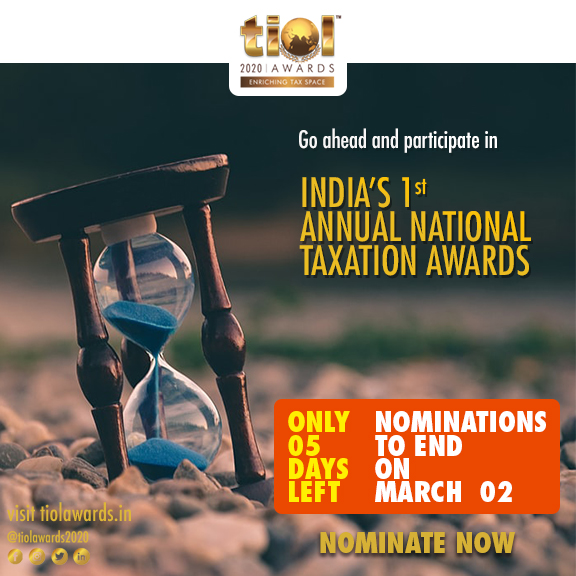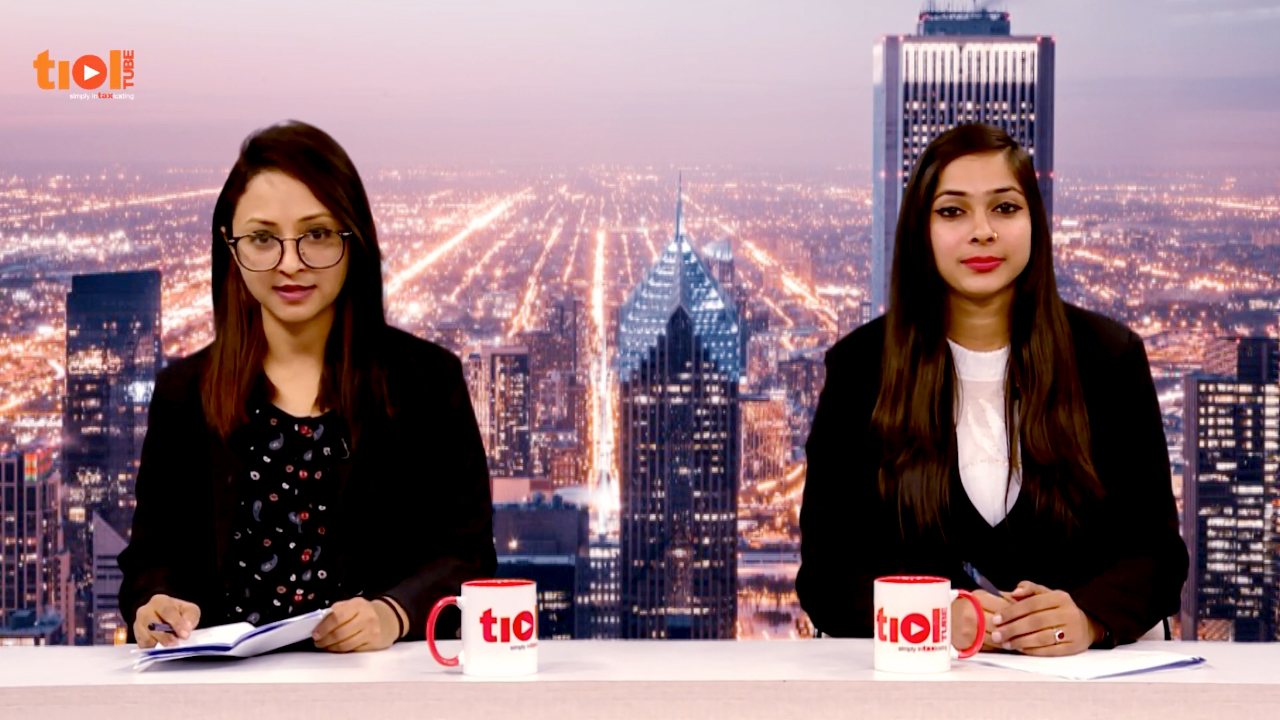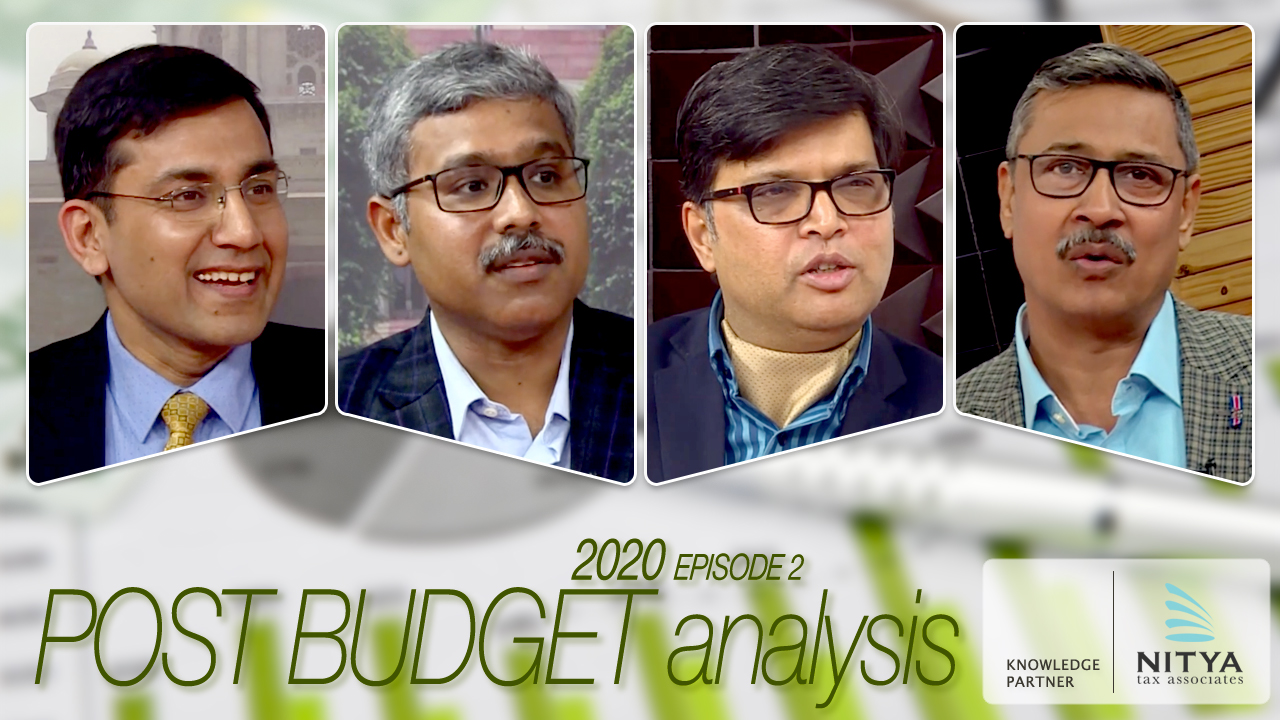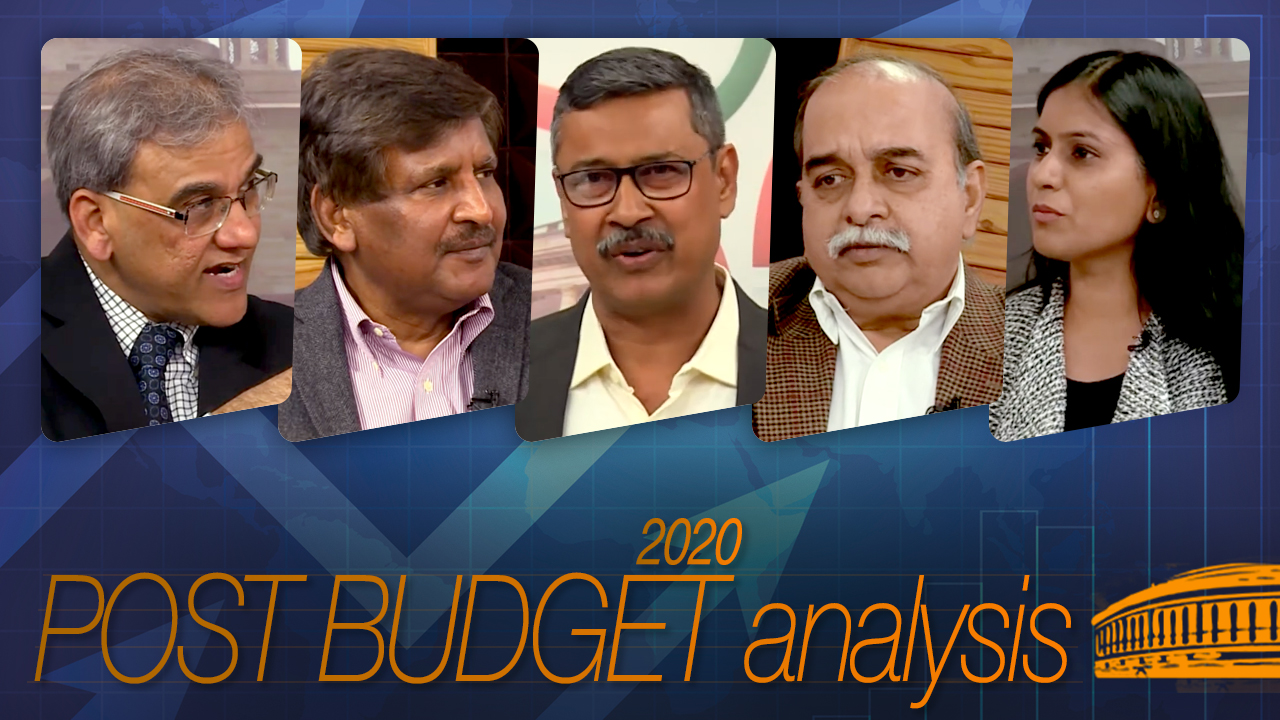| SERVICE TAX 2020-TIOL-369-CESTAT-BANG
Future Foundations Pvt Ltd Vs CCT & CE
ST - Appellant paid service tax by mistake but came to know subsequently when the Board issued the Circular - refund claimed but part of claim rejected as being hit by time bar - appellant submitting that since tax paid is collected by department against authority of law envisaged in Article 262 of the Constitution, the same is refundable.
Held: Period of limitation as provided under Section 11B of the Central Excise Act is applicable in the case of refund and the statutory time limit cannot be extended by any authority - no infirmity in the order of the lower authority - appeal rejected: CESTAT [para 5, 5.1, 6]
- Appeal rejected: BANGALORE CESTAT
CENTRAL EXCISE
2020-TIOL-466-HC-MAD-CX
Steel Authority of India Ltd Vs UoI
CX - Assessee started supplying Coin Blanks from January 1994, but the exemption notification was issued by CBEC only after nine months vide its Ad-hoc Exemption Order No.11/11/94 dated 21.09.1994 - Excise duty was paid initially by the Assesssee on its own and which was not charged from the Department of Economic Affairs and later on in the month of November 1994, the Assesssee made a claim for refund of the entire Excise duty between 01.01.1994 to 12.10.1994 - Tribunal while upholding the order passed by the Adjudicating Authority upheld the rejection of refund of the Assessee for Excise duty on the ground of limitation under Section 11B of the Central Excise Act - writ petition filed under Article 226 of the Constitution - petitioner urges that the ad-hoc or specific exemption is for whole of the quantity and the Assessee was not liable to pay any Excise duty on such clearances of 2640 M.Ts. made by the Assessee; that the duty paid for the period prior to such Exemption Notification has to be refunded to the Assessee treating the same as paid 'under protest' and by not doing so, the exemption granted to the Asseessee was negatived by the lower Authorities - The only plea raised by the Respondent is that the payment having not been made "under protest," the limitation prescribed under Section 11B would apply.
Held: Ad-hoc exemption was granted to the petitioner for specific quantity and for specific purpose - It was not a case for general exemption on the basis of which Assessee claimed the refund - payment of excise duty at the time of clearance of goods in anticipation of exemption right from the day one was, therefore, with the ardent hope of real and effective exemption and the refund of duty paid by the Assessee under compulsion for clearance of the goods - Such a payment even though not labeled by the Assessee to have been paid 'under protest', could very well be treated as payment made by the Assessee 'Under protest' only as per the provisions of Section 11B of the Act paving the way for the rightful refund of excise duty in consonance with Article 265 of Constitution of India which does not permit the State to collect the tax or duty without authority of law - exemption consciously granted by the Central Government knowing that supplies have already been made in January 1994, the same was successfully defeated partially by the Assessing Authority taking a narrow and pedantic view of the limitation in the matter - It was open to the Assesseing Authority to seek a clarification from his higher authorities, as to whether the payment by the Assessee with regard to the clearance of these goods in question could be treated as payment 'under protest' or not as the assessee itself is a Government of India Undertaking, but instead of doing that, taking a shortcut pro-revenue approach, the Adjudicating Authority thought it better to adopt a negative approach of denying the refund on that ground, pushing the Government of India Undertaking into the whirlpool of litigation, which resulted in severe loss of public time and money and time of the valuable time of the Courts - Already 26 years have passed due to one mistake in the decision taken by the Assessing Authority - The intention of Adhoc exemption itself was a glaring fact available before the Assessing Authority - Particularly, the clarification issued on 30.06.1995 makes it clear that exemption was applicable for the entire quantity of goods supplied but ignoring this fact, the Asseesing Authority passed an order denying the refund partially, invoking the technical plea of limitation ignoring the exemption under the Second Proviso of Section 11B of the Act, whereby no limitation would apply when payment of Duty is treated as payment made 'under protest' - It is this kind of negative attitude of the Revenue Authorities which results in the legal battle between the Government of India Public Sector Undertakings and the Revenue Departments - Bench is also bit surprised by the reasons assigned by the CESTAT in distinguishing the clear Judgment of Kolkatta High Court in the case of Assistant Collector of Central Excise, Calcutta Vs. Bata Shoe Co. (P) Ltd - said Judgment was on all fours with the facts of the present case, but the Tribunal preferred to follow only Tribunal's earlier view in the case of Ion Exchange instead of a High Court decision - The Tribunal, the highest Appellate forum under the Act chose to lean in favour of the Revenue just for the sake of it - The very hope of Assessee to get a fair justice apart from the typical pro-revenue approach of the Revenue Authorities was also belied by the Tribunal in the present case, totally ignoring the total ad-hoc exemption for the specific quantity including the purpose thereof and the payment thereof could be very well treated as payment made 'under protest' by the Assessee - The approach taken by the learned Tribunal was least expected - present Writ Petition filed by Assessee deserves to be allowed by setting aside the order passed by the Tribunal, as well as that of the authorities below Tribunal denying the refund to the Assessee - Assessing Authority is directed to refund the entire eligible amount with interest according to law - Writ petition is allowed: High Court [para 9 to 15]
- Petition allowed: MADRAS HIGH COURT
2020-TIOL-465-HC-GUW-CX
National Plywood Industries Ltd Vs UoI
CX - A Central excise duty demand of Rs.1,82,67,651/- has been confirmed against the petitioner along with imposition of equivalent penalty u/r 173Q(1) of CER, 1944 - said order dated 15.11.2019 has been assailed by stating that the petitioner has been held to be a corporate debtor as per the order dated 26.08.2019 of the National Company Law Tribunal, Guwahati and accordingly an order of moratorium had been passed under Section 13 of the Insolvency and Bankruptcy Code, 2016 - Counsel for Revenue submits that the said objection raised by the petitioner as regards the order of moratorium passed by the National Company Law Tribunal had been taken care of by the Commissioner in paragraph 3.2 of his order.
Held: Section 14(1)(a) of the Code, 2016 provides that on the insolvency commencement date, the adjudicating authority shall by order declare a moratorium for prohibiting, amongst others, the institution of suits or continuation of the pending suits or proceeding against the corporate debtor, including execution of any judgment, decree or order in any court of law, tribunal, arbitration panel or other authority - The dominant provision of section 14(1)(a) being institution of suits or continuation of pending suits or proceedings, it is not necessary that only the execution of judgment and decree or order of any court of law, tribunal, arbitration panel or other authority, is prohibited under Section 14(1)(a) and the other provision as regards the institution of suits or continuation of the pending suits or proceedings being a provision of Section 14(1)(a), in a plain reading of Section 14(1)(a) would also have to be prohibited - From the order dated 15.1.2019, it is discernible that the aspect as to whether a pending proceeding before GST authority is also a proceeding as provided in Section 14(1)(a) has not been examined by the Commissioner and consequently the implication thereof i.e. if it is a proceeding whether the order of moratorium would also cover the said proceeding, has also not been looked into - For this purpose, order dated 15.11.2019 is set aside and the matter is remanded back for a fresh consideration by examining the aspect as to whether the order of moratorium of the National Company Law Tribunal also covers the proceeding pending before the GST authorities under the GST Act 2017 - required consideration be made within a period of one month: High Court [para 7 to 11]
- Petition disposed of: GAUHATI HIGH COURT
2020-TIOL-368-CESTAT-BANG
Shri Balaji Sugars And Chemicals Pvt Ltd Vs CCT & CE
CX - Appellant has availed the excess cenvat credit of Rs.72,100/- on capital goods during the month of March 2014 for which the Department has demanded interest - Since this excess cenvat credit was available to the appellant in the next financial year and further the appellant had not utilized the excess cenvat credit and in view of the decision relied upon by the appellant in the case of Bill Forge Pvt. Ltd - 2011-TIOL-799-HC-KAR-CX, the appellant is not liable to pay interest on the excess credit of Rs.72,100/- - impugned order is not sustainable, hence set aside and appeal allowed with consequential relief: CESTAT [para 6]
- Appeal allowed: BANGALORE CESTAT
CUSTOMS
2020-TIOL-367-CESTAT-KOL
CC Vs Evershine Customs C And F Pvt Ltd
Cus - Show Cause Notice does not invoke the Provisions of Customs Brokers Regulations; moreover violation if any under the Customs Brokers Regulation, cannot automatically make the appellants liable for penalty under Customs Act - Looking into the fact that the Department has not taken any action under the said Customs Broker Regulations on the appellant, other than allegation of accepting documents from Shri Sujan Sharma, no allegation or evidence to show that the appellant was indeed in the knowledge of the fact of smuggling of Red Sanders has been brought on record - appellant has received an authorization from the Exporter and the Department does not allege that the antecedents of the exporter were not verified by the appellants - It is also not made clear as to what was wrong with the authorization received by the appellants from the exporter and if the Original Exporter was also fake or otherwise - Therefore, accepting the documents from Shri Sujan Sharma and receiving payment in cash do not in themselves constitute an offence punishable under Customs Act, 1962 - No case has been made by the department that there was some positive act or abetment of the smuggling by the appellant - In fact, as a Customs Broker, his role has not even begun as the said goods have been apprehended well before they reached the port - There is no whisper leave alone evidence that the appellant was aware of the fact that Red Sanders logs were stuffed in the container and were to be exported in the consignment for which they have received authorization - Appellant has not rendered himself liable for penalty u/s 114 of Customs Act, 1962 - Revenue appeal is, therefore, dismissed: CESTAT [para 9]
- Appeal dismissed: KOLKATA CESTAT
| 







